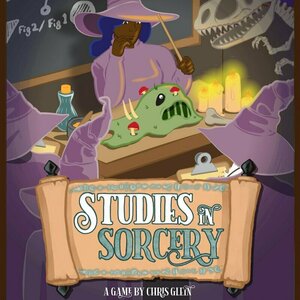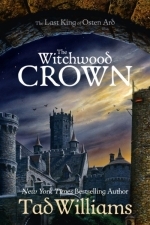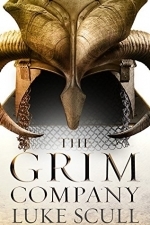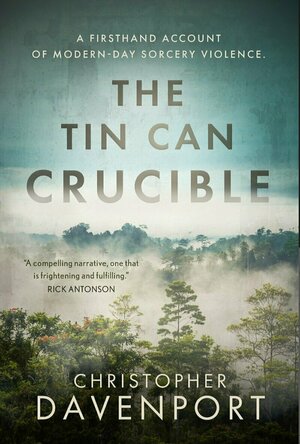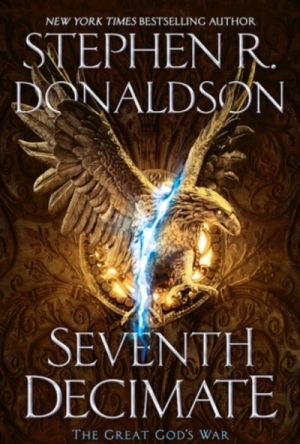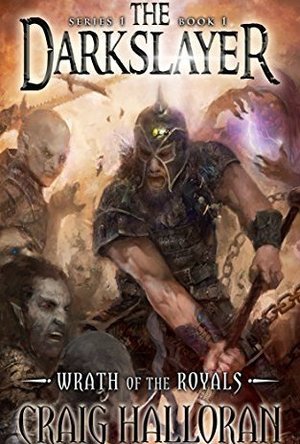Search
Purple Phoenix Games (2266 KP) rated Studies in Sorcery in Tabletop Games
Oct 6, 2020
We’re all nerds here, right? What was the best class the gang took in the Harry Potter series? Defense Against the Dark Arts of course! Learning spells to protect ones’ self (oneself? themselves??) from an onslaught of dark spells looked so fun in the movies. *DISCLAIMER: I have never read a Harry Potter book. I made it one chapter and couldn’t do it, but I have seen the movies several times.* In any case, what if you could learn the other side of these spells? The offensive ones? Well that would be cool right? What if you could get a full master’s degree in Dark Arts? Welcome to Studies in Sorcery.
Studies in Sorcery is a competitive card game that uses elements from other well-loved games and puts them with a wonderful theme and some very interesting card synergies. The game takes place over four school semesters (rounds) and each semester lasts four weeks (turns). Can you students complete your thesis using the research grants you are given, or will you fall flat to repeat the program again?
DISCLAIMER: We were provided a prototype copy of this game for the purposes of this preview. These are preview copy components, and the final components may be different from these shown. Also, it is not my intention to detail every rule in the game, but to give our readers an idea of how the game plays. You are invited to back the game on Kickstarter launching October 6, 2020, order from your FLGS, or purchase through any retailers stocking it after it is fulfilled. -T
To setup, separate each deck of cards into like piles (Levels 100, 200, and 300 of the projects, graveyard cards, candles, vials) and shuffle them. Lay out the moon phase cards and semester tracker, placing the tracker tokens (skull erasers in the prototype) on the start of the cards to begin play. Set out the candles and vials in their own piles, as well as the point modifier tokens. Deal project cards according to the semester tracker in a 3×2 pattern under the moon phase and semester tracker cards like is shown in the photo below. Initially the graveyard pile will have three stacks of two cards each face-down next to the draw pile. Each player receives a research grant card, two thesis cards to choose one from, and two 100-level project cards from which the player will choose one. Give the first-player token (in this prototype it’s a cute LEGO skeleton) to the player who last attended school, and the game may begin!
Each player will be resolving actions, committing materials to their projects, and using completed project abilities each moon phase (turn). The actions one may take are: Dig, Buy, Cram, and Project Action. When a player uses the Dig action, they are searching for materials. A player can look at the items in the first pile of graveyard cards and take all the contents. If they do not like them, draw a card from the draw deck and place it on the first pile. Continue this for the next pile, and if unsatisfied the player may draw the top card from the draw pile OR either a candle or vial from the supply of stock cards.
Buy actions allow a player to use any unwanted materials or research grant monies to purchase additional candles, vials, or project cards from the middle of the table. To Cram, players may commit up to two materials from their hand to a project by placing the materials under the project cards. Project Actions allow players to use actions printed on any of their completed project cards. These can be very powerful.
Once each player has taken one of these actions, move the tracker token on the moon phase card to the next icon – Commit. To commit materials to projects, simply place the cards under the selected project (exactly like players do with the Cram action). Once all players have completed their commits, they may complete any projects that have sufficient materials by discarding the used materials and flipping the project card to its opposite side earning the printed points at the end of the game.
Play continues in this fashion for four turns each semester and the game lasts four semesters. Therefore the game will last 16 turns total. Whomever earns the most points for combinations of completed thesis cards, completed projects, bonus point modifier tokens, and one point for each $8 worth of materials in hand will be named Valedictorian of their class and winner of Studies in Sorcery!
Components. Again, this is a prototype copy of the game, and I know some things will be different in the final version. However, what we were provided is a bunch of cards that have great art, are good quality, and are very easy to read and understand. The cute first player token will more than likely become a different component in the end, and the tracker tokens probably will be changed as well, but these are great bits to include in a game like this. The only negative I have about components is that I wish there was MORE color. Most of the cards are brown-heavy, and it’s completely fine, but I would love to have splashes of weird colors here and there. Overall, I am very pleased with the components in this game. Weird Giraffe Games always has great components in their prototypes AND final games.
It is probably no surprise that I love this game. The theme is wonderful, the wonky art is great, and it’s more thinky than one might imagine. The game play can be somewhat quick, or players can take excruciating amounts of time to think through their turns and chain together impressive actions. One thing remains constant – 16 turns to complete your thesis cards can be a huge undertaking. My first time playing I chose a thesis card worth 7 points (even though the rulebook advised me not to include those for the first play). I wasn’t even really that close to completing the thesis, but I may have with another two or three turns. But then again, that card is worth 7 points for a reason – it’s SUPPOSED to be difficult. My suggestion: take the rulebook’s advice and remove those thesis cards for the first play. Don’t try to be a hero.
Ahhhhhhh! I want to play it again right now just so I can attempt that thesis card again. But there are other thesis cards in the game. And other strategies to apply. And really, when you can’t wait to play a game, that’s a sign of a fantastic game for that specific gamer. Will this be a gem for everyone? I don’t know. It certainly works for me and my circle of gamers.
If you are a fan of the Harry Potter series (even though this is NOT a Harry Potter game) and need a thinky card game with that sort of fantasy classroom theme, or if your collection is begging for something new and quirky, or if you just love Weird Giraffe Games’ catalog and need every game they offer (I wouldn’t blame you), then you need to give Studies in Sorcery a look. Please consider backing it on Kickstarter launching October 6, 2020. I know my collection just got a lot cooler with this one.
Studies in Sorcery is a competitive card game that uses elements from other well-loved games and puts them with a wonderful theme and some very interesting card synergies. The game takes place over four school semesters (rounds) and each semester lasts four weeks (turns). Can you students complete your thesis using the research grants you are given, or will you fall flat to repeat the program again?
DISCLAIMER: We were provided a prototype copy of this game for the purposes of this preview. These are preview copy components, and the final components may be different from these shown. Also, it is not my intention to detail every rule in the game, but to give our readers an idea of how the game plays. You are invited to back the game on Kickstarter launching October 6, 2020, order from your FLGS, or purchase through any retailers stocking it after it is fulfilled. -T
To setup, separate each deck of cards into like piles (Levels 100, 200, and 300 of the projects, graveyard cards, candles, vials) and shuffle them. Lay out the moon phase cards and semester tracker, placing the tracker tokens (skull erasers in the prototype) on the start of the cards to begin play. Set out the candles and vials in their own piles, as well as the point modifier tokens. Deal project cards according to the semester tracker in a 3×2 pattern under the moon phase and semester tracker cards like is shown in the photo below. Initially the graveyard pile will have three stacks of two cards each face-down next to the draw pile. Each player receives a research grant card, two thesis cards to choose one from, and two 100-level project cards from which the player will choose one. Give the first-player token (in this prototype it’s a cute LEGO skeleton) to the player who last attended school, and the game may begin!
Each player will be resolving actions, committing materials to their projects, and using completed project abilities each moon phase (turn). The actions one may take are: Dig, Buy, Cram, and Project Action. When a player uses the Dig action, they are searching for materials. A player can look at the items in the first pile of graveyard cards and take all the contents. If they do not like them, draw a card from the draw deck and place it on the first pile. Continue this for the next pile, and if unsatisfied the player may draw the top card from the draw pile OR either a candle or vial from the supply of stock cards.
Buy actions allow a player to use any unwanted materials or research grant monies to purchase additional candles, vials, or project cards from the middle of the table. To Cram, players may commit up to two materials from their hand to a project by placing the materials under the project cards. Project Actions allow players to use actions printed on any of their completed project cards. These can be very powerful.
Once each player has taken one of these actions, move the tracker token on the moon phase card to the next icon – Commit. To commit materials to projects, simply place the cards under the selected project (exactly like players do with the Cram action). Once all players have completed their commits, they may complete any projects that have sufficient materials by discarding the used materials and flipping the project card to its opposite side earning the printed points at the end of the game.
Play continues in this fashion for four turns each semester and the game lasts four semesters. Therefore the game will last 16 turns total. Whomever earns the most points for combinations of completed thesis cards, completed projects, bonus point modifier tokens, and one point for each $8 worth of materials in hand will be named Valedictorian of their class and winner of Studies in Sorcery!
Components. Again, this is a prototype copy of the game, and I know some things will be different in the final version. However, what we were provided is a bunch of cards that have great art, are good quality, and are very easy to read and understand. The cute first player token will more than likely become a different component in the end, and the tracker tokens probably will be changed as well, but these are great bits to include in a game like this. The only negative I have about components is that I wish there was MORE color. Most of the cards are brown-heavy, and it’s completely fine, but I would love to have splashes of weird colors here and there. Overall, I am very pleased with the components in this game. Weird Giraffe Games always has great components in their prototypes AND final games.
It is probably no surprise that I love this game. The theme is wonderful, the wonky art is great, and it’s more thinky than one might imagine. The game play can be somewhat quick, or players can take excruciating amounts of time to think through their turns and chain together impressive actions. One thing remains constant – 16 turns to complete your thesis cards can be a huge undertaking. My first time playing I chose a thesis card worth 7 points (even though the rulebook advised me not to include those for the first play). I wasn’t even really that close to completing the thesis, but I may have with another two or three turns. But then again, that card is worth 7 points for a reason – it’s SUPPOSED to be difficult. My suggestion: take the rulebook’s advice and remove those thesis cards for the first play. Don’t try to be a hero.
Ahhhhhhh! I want to play it again right now just so I can attempt that thesis card again. But there are other thesis cards in the game. And other strategies to apply. And really, when you can’t wait to play a game, that’s a sign of a fantastic game for that specific gamer. Will this be a gem for everyone? I don’t know. It certainly works for me and my circle of gamers.
If you are a fan of the Harry Potter series (even though this is NOT a Harry Potter game) and need a thinky card game with that sort of fantasy classroom theme, or if your collection is begging for something new and quirky, or if you just love Weird Giraffe Games’ catalog and need every game they offer (I wouldn’t blame you), then you need to give Studies in Sorcery a look. Please consider backing it on Kickstarter launching October 6, 2020. I know my collection just got a lot cooler with this one.
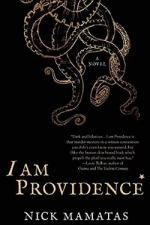
I Am Providence
Book
An author's murder during an H. P. Lovecraft fan convention reveals dark secrets beneath the printed...
Horror crime
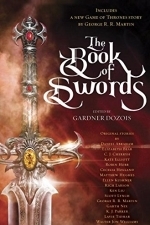
The Book of Swords
Book
New epic fantasy in the grand tradition—including a never-before-published Song of Ice and Fire...
Fantasy
Ross (3284 KP) rated The Witchwood Crown in Books
May 1, 2019
700 pages that feel like so much more
I haven't read the preceding series but had researched and general consensus was that it was not mandatory. This was my first experience of Tad Williams. And indeed, I did not feel I was missing out on any information - there is enough discussion of past events to make me want to read that series, but it is done in such a way as to give the new reader enough insight.
As with so much epic fantasy, this book covers a large world, with numerous PoV characters, different cultures, creatures and races. In this regard, Williams has shown himself to be a true master - he really has built a new world that feels so well embedded and thought-through.
The plot, however, was quite well hidden in the book. The High King and Queen seem to uncover possible rumours of evil sorcery within the kingdom and there is a hint of the evil Norn rising up again. But that is such a small part of the book, so much of it is simply chatting, moaning about things, going ice skating and hill-climbing and healing people from injury/poison. With such a time commitment from readers there is a need to make every chapter count, and I felt at times the reader was being somewhat let down with needless scenes and interactions.
The battle scenes were rare exceptions, being exciting and well narrated.
I felt one major part of the book was going to be the coming-of-age and maturity of Prince Morgan, the heir to the high throne. However at the end of the book he is still an obnoxious, alcoholic arse.
This book had to be either a bridge between the old and the new series, or the start of the new one, and somehow it manages to be neither. I don't feel enough of what is surely to follow has been set up, but likewise I don't feel I know enough of what happened before and how it will influence what comes later.
A large commitment that has yet to pay off.
As with so much epic fantasy, this book covers a large world, with numerous PoV characters, different cultures, creatures and races. In this regard, Williams has shown himself to be a true master - he really has built a new world that feels so well embedded and thought-through.
The plot, however, was quite well hidden in the book. The High King and Queen seem to uncover possible rumours of evil sorcery within the kingdom and there is a hint of the evil Norn rising up again. But that is such a small part of the book, so much of it is simply chatting, moaning about things, going ice skating and hill-climbing and healing people from injury/poison. With such a time commitment from readers there is a need to make every chapter count, and I felt at times the reader was being somewhat let down with needless scenes and interactions.
The battle scenes were rare exceptions, being exciting and well narrated.
I felt one major part of the book was going to be the coming-of-age and maturity of Prince Morgan, the heir to the high throne. However at the end of the book he is still an obnoxious, alcoholic arse.
This book had to be either a bridge between the old and the new series, or the start of the new one, and somehow it manages to be neither. I don't feel enough of what is surely to follow has been set up, but likewise I don't feel I know enough of what happened before and how it will influence what comes later.
A large commitment that has yet to pay off.
Phil Leader (619 KP) rated The Grim Company in Books
Nov 14, 2019
The Grim Company aims to deliver a swords and sorcery tail in the epic mould while being gritty, grimy and dirty in detail. And to a very large extent it suceeds, managing to tell a tale of war between city states from the point of view of some of the characters cauught up in it.
One thing that is always hard to do when starting out on a new story is to get used to the characters. The author must balance the need to ensure that enough time is spent to flesh out each character as they are introduced without overwhelming the reader and Scull is adept at this, the first few chapters detailing some of the misadventures, goals and dreams of the main characters.
And what characters they are. Cole is a young hero with a magical blade, who's destiny is to free the city of Dorminia from the tyrant Salazar, while at the same time being a real catch for any pretty girls. Or so he sees himself. To everyone else he is vain, boastful and arrogant. Jerek is a barbarian who has the market cornered in foul language, pithy insults and scowling at everything. Also good is Barandas, head of the elite guard of the city who is just trying to do his job.
The obvious author to compare Scull to is Joe Abercrombie, and the comparison is a fair one although (in this book) Scull doesn't quite manage to create the depth and range in Abercrombie's characters and situations. So although they aren't really classic fantasy archetypes, they are still close and don't subvert them. What Scull does bring is a little less cynicism than Abercrombie. Here it is worth fighting for what you believe is right, and honour still has value. This gives it a rather refreshing feeling.
The book also has strength in being the first of a series so it doesn't have to be a stand alone story and can leave enough threads for the next book to pick up. This allows the end, after a frenetic climactic battle, to relax into telling the aftermath rather than spending too much time trying to tie up all the loose ends.
Overall a good book for the fantasy lover. Not as grim or dark as 'grimdark' but still with enough spit and sawdust to add an underbelly to the reliable fantasy concepts it should appeal to a wide audience.
Rated: Strong language, bloody violence and some sexual references throughout
One thing that is always hard to do when starting out on a new story is to get used to the characters. The author must balance the need to ensure that enough time is spent to flesh out each character as they are introduced without overwhelming the reader and Scull is adept at this, the first few chapters detailing some of the misadventures, goals and dreams of the main characters.
And what characters they are. Cole is a young hero with a magical blade, who's destiny is to free the city of Dorminia from the tyrant Salazar, while at the same time being a real catch for any pretty girls. Or so he sees himself. To everyone else he is vain, boastful and arrogant. Jerek is a barbarian who has the market cornered in foul language, pithy insults and scowling at everything. Also good is Barandas, head of the elite guard of the city who is just trying to do his job.
The obvious author to compare Scull to is Joe Abercrombie, and the comparison is a fair one although (in this book) Scull doesn't quite manage to create the depth and range in Abercrombie's characters and situations. So although they aren't really classic fantasy archetypes, they are still close and don't subvert them. What Scull does bring is a little less cynicism than Abercrombie. Here it is worth fighting for what you believe is right, and honour still has value. This gives it a rather refreshing feeling.
The book also has strength in being the first of a series so it doesn't have to be a stand alone story and can leave enough threads for the next book to pick up. This allows the end, after a frenetic climactic battle, to relax into telling the aftermath rather than spending too much time trying to tie up all the loose ends.
Overall a good book for the fantasy lover. Not as grim or dark as 'grimdark' but still with enough spit and sawdust to add an underbelly to the reliable fantasy concepts it should appeal to a wide audience.
Rated: Strong language, bloody violence and some sexual references throughout
ClareR (6037 KP) rated The Tin Can Crucible in Books
Dec 29, 2020
It’s thanks to The Pigeonhole that I read this book - it’s not something that I would have normally considered. I’ll be honest, it was the cover that attracted me. The photo of the mountain with the tops of the trees peeking through the cloud: it’s a beautiful picture. And the tag line across the front of the front: ‘A firsthand account of modern day sorcery violence’. Well. I had to know what this was about. It had immediately intrigued me. I had had the impression that the Peace Corps was a religious organisation, and this book put that little piece of misinformation to rights (it’s not).
Even with all the detailed descriptions, I still felt it was difficult to imagine what life must have been like, living in one of these villages. It’s so far beyond my own experiences, that even with Christophers detailed explanations of village life, I couldn’t comprehend how these people lived. Huts with dirt on the floor, men and women aged before their time, no running water or, I assume, sewage systems. I’m a bit of a details person, and I’ve come to believe over the last 40 years or so, that toilets and running water are up there in my list of top priorities.
The real crux of this novel though, is the death of the elder - a man that Christopher gets along with very well, and had spoken to frequently. Then he dies. Whilst Christopher is sleeping, two women are imprisoned and accused of killing the elder using witchcraft. They are shut away together until one or the other turns the other woman in. If they don’t, then they both die. This was clearly a situation where someone was going to lose out. And by ‘lose out’, I mean ‘die’. Christopher is understandably upset by this - who can blame him? But at the same time, there’s nothing he can do. He’s in another country where this kind of behaviour, whilst not frequent, is accepted. You can feel his disappointment in his foster family radiating off the page, and also his helplessness. I couldn’t understand how he could stay with them though.
I think the real lesson for both the author and the reader, was that these were not people who could be changed. They were firmly entrenched in their own culture and beliefs.
Many thanks to The Pigeonhole and Christopher Davenport for serialising this informative and emotional memoir. This is what reading is about: learning something new, completely out of your own sphere of knowledge. This book certainly delivers on that.
Even with all the detailed descriptions, I still felt it was difficult to imagine what life must have been like, living in one of these villages. It’s so far beyond my own experiences, that even with Christophers detailed explanations of village life, I couldn’t comprehend how these people lived. Huts with dirt on the floor, men and women aged before their time, no running water or, I assume, sewage systems. I’m a bit of a details person, and I’ve come to believe over the last 40 years or so, that toilets and running water are up there in my list of top priorities.
The real crux of this novel though, is the death of the elder - a man that Christopher gets along with very well, and had spoken to frequently. Then he dies. Whilst Christopher is sleeping, two women are imprisoned and accused of killing the elder using witchcraft. They are shut away together until one or the other turns the other woman in. If they don’t, then they both die. This was clearly a situation where someone was going to lose out. And by ‘lose out’, I mean ‘die’. Christopher is understandably upset by this - who can blame him? But at the same time, there’s nothing he can do. He’s in another country where this kind of behaviour, whilst not frequent, is accepted. You can feel his disappointment in his foster family radiating off the page, and also his helplessness. I couldn’t understand how he could stay with them though.
I think the real lesson for both the author and the reader, was that these were not people who could be changed. They were firmly entrenched in their own culture and beliefs.
Many thanks to The Pigeonhole and Christopher Davenport for serialising this informative and emotional memoir. This is what reading is about: learning something new, completely out of your own sphere of knowledge. This book certainly delivers on that.
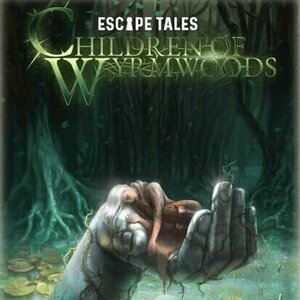
Escape Tales: Children of Wyrmwoods
Tabletop Game
Escape Tales: Children of Wyrmwoods is a story driven escape room in card game form, with immersive...
Ross (3284 KP) rated The Seventh Decimate : The Great Gods War Book One in Books
Jan 22, 2018
The main character (2 more)
The storyline
Everything else
1 dimensional short story that goes on too long
*** Disclosure: I received a free copy of this from NetGalley in exchange for an honest review ***
I haven't previously read any of Donaldson's work, though my Dad's unwieldy omnibus edition of the First Chronicles of Thomas Covenant the Unbeliever has been in my pile for some time now.
The storyline follows Prince Bifalt journeying to find the sorcery that can undo his country's current plight (they appear to have lost all magical abilities, key to staying in their generations old battle with neighbours). It starts off in the moments before battle, with the prince teaching his comrades about the history of the battle in a very hard to believe section of "here's the backstory but isn't it good that I wove it into the dialogue". We are introduced to his brothers at arms and each of their quirks and peccadillos, which turns out to be a waste as they pretty much all die within the next 100 pages, whether they like horses or are womanisers or not.
The opening action is very gripping and filled me with hope for the book to follow, as Bifalt and his companions lead a special mission to assassinate the enemy's sorcerers with their previously unreleased rifles.
Thereafter the action pretty much dries up. What follows on Bifalt's quest is a nonsense 200 pages of journey through the back country with a thoroughly detestable character who suspects everyone except those who actually have a reason to be his enemy.
After days in the desert, he meets a nonsensical caravan of misfits that he manages to ostracise himself from by being himself.
What follows is a tedious nonsense of journey, discussion, treachery, intrigue and just general nonsense.
Donaldson has an annoying habit of occasionally following a line of dialogue with "What he meant was" to show what the prince is actually trying to ask but didn't. This gets very annoying very quickly.
The conclusion of the story can only be described as relief that it is over, no great revelations, no climactic sequence or discovery, just "that's that sorted then now send to publishers".
Having recently read a number of fantasy books told from numerous viewpoints and covering really epic storylines, to come to such a linear, one dimensional tossed away story as this from someone who is supposed to be one of the greats of the genre, it really was an incredible disappointment.
I shan't be reading the second or third books of the trilogy, and Thomas Covenant has just slipped down my pile a bit.
I haven't previously read any of Donaldson's work, though my Dad's unwieldy omnibus edition of the First Chronicles of Thomas Covenant the Unbeliever has been in my pile for some time now.
The storyline follows Prince Bifalt journeying to find the sorcery that can undo his country's current plight (they appear to have lost all magical abilities, key to staying in their generations old battle with neighbours). It starts off in the moments before battle, with the prince teaching his comrades about the history of the battle in a very hard to believe section of "here's the backstory but isn't it good that I wove it into the dialogue". We are introduced to his brothers at arms and each of their quirks and peccadillos, which turns out to be a waste as they pretty much all die within the next 100 pages, whether they like horses or are womanisers or not.
The opening action is very gripping and filled me with hope for the book to follow, as Bifalt and his companions lead a special mission to assassinate the enemy's sorcerers with their previously unreleased rifles.
Thereafter the action pretty much dries up. What follows on Bifalt's quest is a nonsense 200 pages of journey through the back country with a thoroughly detestable character who suspects everyone except those who actually have a reason to be his enemy.
After days in the desert, he meets a nonsensical caravan of misfits that he manages to ostracise himself from by being himself.
What follows is a tedious nonsense of journey, discussion, treachery, intrigue and just general nonsense.
Donaldson has an annoying habit of occasionally following a line of dialogue with "What he meant was" to show what the prince is actually trying to ask but didn't. This gets very annoying very quickly.
The conclusion of the story can only be described as relief that it is over, no great revelations, no climactic sequence or discovery, just "that's that sorted then now send to publishers".
Having recently read a number of fantasy books told from numerous viewpoints and covering really epic storylines, to come to such a linear, one dimensional tossed away story as this from someone who is supposed to be one of the greats of the genre, it really was an incredible disappointment.
I shan't be reading the second or third books of the trilogy, and Thomas Covenant has just slipped down my pile a bit.
Ross (3284 KP) rated The Darkslayer: Wrath of the Royals in Books
Feb 5, 2019
Strong debut novel, deeper than expected
Wrath of the Royals, the first in the 16 book Darkslayer series following Venir, the Darkslayer (an axe-wielding barbarian) and his companion Melagal (the cowardly "rogue") as they run from the titular wrath of one of the royal families. Venir tends to get himself into bets, as alpha male types just seem attracted to him, and one such bet ends him in the bad books with one of the most powerful, and twisted, royal families.
This leads to the pair going on the run to escape the inevitable wrath. However, little do they know that the Underlings (those twisted, evil humanoids Venir is driven to hunt) are after Venir from different angles - one due to his relentless genocide of their race, and another due to being hired to hunt him down by the royals.
On the surface, I expected this to be a basic sword and sorcery tale; the barbarian wandering the wilds hacking down the Underlings. I was pleasantly surprised to find a fairly well told tale with different layers and a more intricate plot than I had expected.
Halloran's prose is decent, with a good knack for getting the balance between over-narration and concise descriptions. There is enough description of the world without it being laboured. There are some odd choices for phrases or wording here or there (eg "Impending pain was on its way"), and the book could do with a decent thorough edit, but for a first book it is a good effort.
The world of Bish turns out to be something of an experiment on the part of a God, seeing if she can design a world that will remain in permanent conflict for eternity, good and evil constantly vying but neither side ever truly winning. While this could be seen as literally setting up for "deus ex machina" whenever the author chooses, this didn't really come to the fore in this book.
Venir is a reasonably well-crafted character, albeit a stupid brute and something like Logen Ninefingers from Joe Abercrombie's First Law (when he puts on his magical helmet (yes I know!) he becomes more driven to destruction, somewhat akin to the emergence of The Bloody Nine). Numerous times he just gets up in the night and wanders off searching for the conflict he has sensed, the helmet guiding him onwards. But his actions play well off those of his travelling companions, which has now become something like the fellowship of the ring, but without a ring.
The book ends with an extended epilogue giving an idea of Venir's life before he found his magical axe, shield and mind-controlling helmet.
A good self-contained book, which concludes well and could be read on its own, without continuing the series, though I plan to (ideally before my Kindle Unlimited period runs out!).
This leads to the pair going on the run to escape the inevitable wrath. However, little do they know that the Underlings (those twisted, evil humanoids Venir is driven to hunt) are after Venir from different angles - one due to his relentless genocide of their race, and another due to being hired to hunt him down by the royals.
On the surface, I expected this to be a basic sword and sorcery tale; the barbarian wandering the wilds hacking down the Underlings. I was pleasantly surprised to find a fairly well told tale with different layers and a more intricate plot than I had expected.
Halloran's prose is decent, with a good knack for getting the balance between over-narration and concise descriptions. There is enough description of the world without it being laboured. There are some odd choices for phrases or wording here or there (eg "Impending pain was on its way"), and the book could do with a decent thorough edit, but for a first book it is a good effort.
The world of Bish turns out to be something of an experiment on the part of a God, seeing if she can design a world that will remain in permanent conflict for eternity, good and evil constantly vying but neither side ever truly winning. While this could be seen as literally setting up for "deus ex machina" whenever the author chooses, this didn't really come to the fore in this book.
Venir is a reasonably well-crafted character, albeit a stupid brute and something like Logen Ninefingers from Joe Abercrombie's First Law (when he puts on his magical helmet (yes I know!) he becomes more driven to destruction, somewhat akin to the emergence of The Bloody Nine). Numerous times he just gets up in the night and wanders off searching for the conflict he has sensed, the helmet guiding him onwards. But his actions play well off those of his travelling companions, which has now become something like the fellowship of the ring, but without a ring.
The book ends with an extended epilogue giving an idea of Venir's life before he found his magical axe, shield and mind-controlling helmet.
A good self-contained book, which concludes well and could be read on its own, without continuing the series, though I plan to (ideally before my Kindle Unlimited period runs out!).
